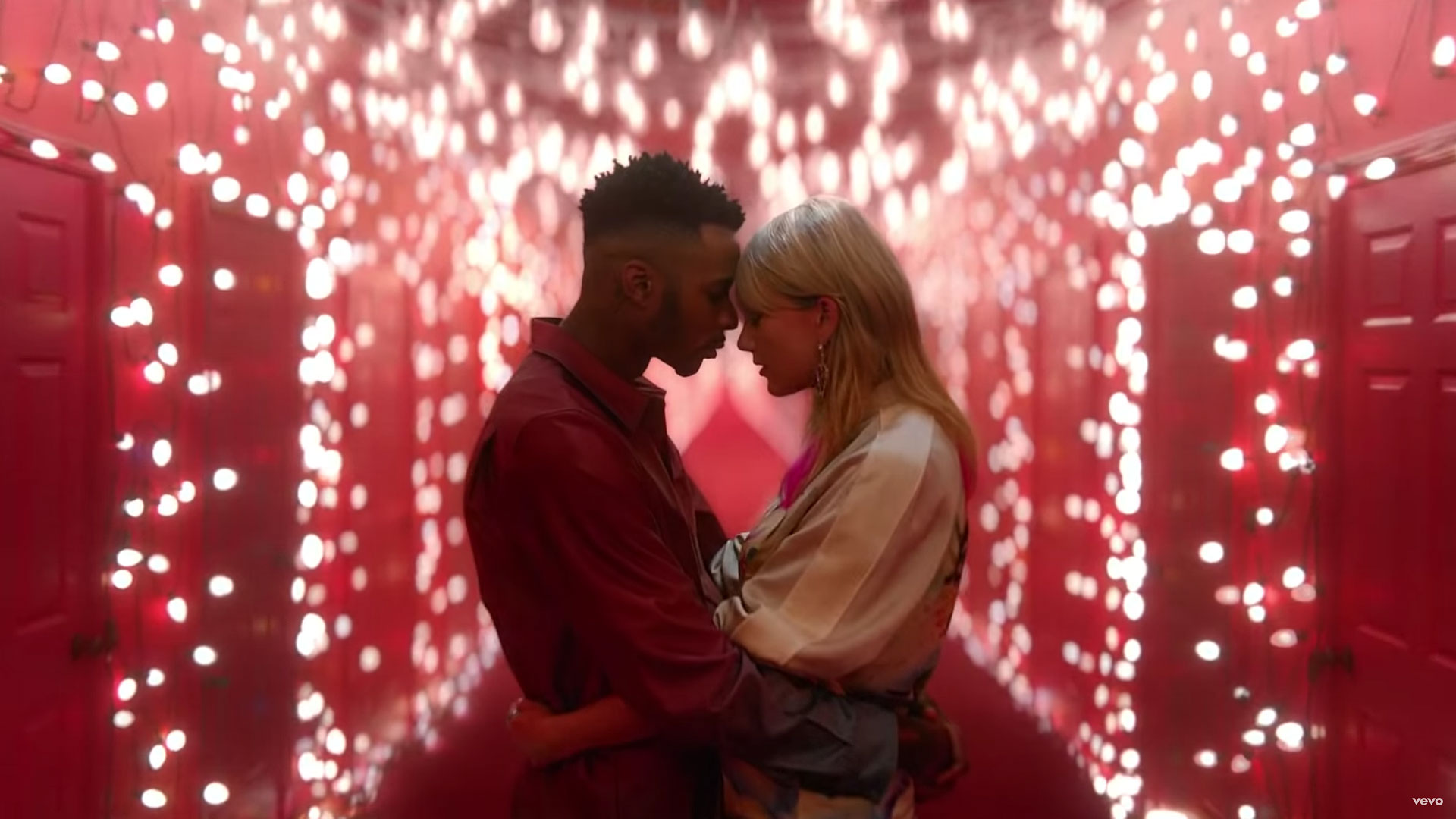One thing that’s always made me ill at ease when it comes to Taylor Swift is her victimhood. Sometimes it’s warranted—as when, ten years ago, Swift got bum-rushed by a drunken Kanye West during the 2009 VMA Awards.
Other times, though, the Swift-as-victim narrative grows tiring, as with the recent Scooter Braun incident (her contracts from career’s start were no different than most), or her past lyrics about mean men behaving badly (or worse, having them stolen away from her by wanton women).
Swift played the blame game well into adulthood, in both song and in the media so many times (Joe Jonas, Calvin Harris, Katy Perry) that by the time 1989 released, it seemed almost like a tic, a quality so overexposed and blatantly hyped, she began looking bad—even obsessive. And so she played the victim again and blamed the same media she ran to for head-patting comfort (and coverage) for covering her romantic life. She also became a feminist, despite renouncing the word earlier on in her career. As with Kayne’s continued messianic messiness, we no longer trusted the artist to be real—a weird word, considering the artifice of the business. Swift’s victimhood made her a caricature beyond her songs.
Contrastingly, Lover—her seventh album and the first one she owns, in addition to being her first for Republic proper as opposed to Big Machine—vibes, thrives, and succeeds. This is the first recording since her childhood days where she’s not even hinting at victimhood; she’s taking responsibility and simultaneously seems carefree.
“I want to be defined by the things I love,” sing-speaks Swift on the synth-shiny ballad “Daylight” in a tone both whispery and intense, not unlike Control-era Janet Jackson. “Not the things I hate, not the things I’m afraid of, not the things that haunt me in the middle of the night. I think that you are what you love.”
It may also help that she goes back in time on Lover, to simpler joys and earlier, more effortless moments, as on “It’s Nice to Have a Friend”—where she seems to be just a kid, losing her mittens, running home from school in the snow, all to the accompaniment of a soft bed of fuzzy noise. Suddenly, all the messiness of her last decade (OK, maybe not all of it) swirls down the drain of hip-pop producers Louis Bell and Frank Dukes’ lush melody and washes away her sins as if she’s visited Lourdes.
Throughout the melodic and effortlessly bubbly (and bubblegummy) new album, Swift owns up to her transgressions and mistakes in relationships, even if she is—on the title track—doing so with a wink, as on “Lover” lines like “Swear to be overdramatic and true.” An incrementally creeping yet sun-dappled “The Archer” finds her looking shamelessly backwards at her blunders: “All of my enemies started out friends,” she admits. “Help me hold on to you.”
Perhaps now, the Swift of Lover can have some mature fun and feel pleased with her rightful reign as a chart-topper, her most emotive recording as a singer (a big plus, as so much of what she has done before has been breathily slight), and her accomplishments as a songwriter. This record finds Swift at her most prolific—of eighteen tracks, she’s written three on her own, several with Jack Antonoff (one of theirs, “Cruel Summer,” was co-written by St. Vincent’s Annie Clark), Joel Little, and a handful of others like Brandon Urie (the too-fizzy lead single “Me!”).
“I Forgot That You Existed” is poised at the intersection of laughing and forgetting, leaving the past so as to move forward without an anchor. The souped-up, synth-phonic “Cruel Summer” and “Death by a Thousand Cuts” are also haunted by melancholy and the memory of a break-up, but the ghost is just a cotton sheet, and easily dispensed. The (literally) harmonious “Soon You’ll Get Better,” featuring the curling country voices of the Dixie Chicks, moves from the relationship woes to something more serious, as she contemplates a loved one’s bad health. Along with giving Lover a different texture (banjos, fiddles), there is a deeper feeling of personal revelation and sonic effervescence on this track than on any other.
“Paper Rings” and its “1-2-3-4,” “hey! ho!” reverie is pure bliss, a Bangles-meets-Go-Gos treat with an odd marital twist (not the only one on Lover, either). “I Think He Knows” finds her confident as a catch (“He’s so obsessed with me, and boy, I understand!”) and as a singer, stretching her range for a buoyant falsetto that doesn’t sound fixed-in-the-mix or AutoTuned.
Sure, she’s disgusted by what this country has become (“Miss Americana and the Heartbreak Prince”), how LGBTQ rights have been threatened (“You Need to Calm Down”), and how sexism affects women, still, in the #MeToo era (“The Man”). But she deals with these topics so swiftly (no pun intended), with more than a few teaspoons full of sugar, that the guilty might miss being dissed. That, or—like Taylor Swift herself—they’ll be having too much fun to notice. FL









